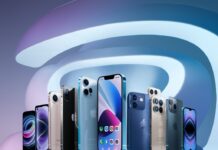Google Glass might solve some purposes, but it is also said to be a barrier in driving. Texting using Glass or smartphone may create distractions, but a new study found that if user texts using the head implement and meets with a traffic incident, then he or she is better able to regain control of vehicle than the smartphone users.
First of its kind study
A research team from University of Central Florida chose texting while driving using Google Inc (NASDAQ:GOOGL) (NASDAQ:GOOG) Glass as the subject of its study. This study is the first scientific look at the topic and has been conducted in cooperation with Air Force Research Laboratory.
“Texting with either a smartphone or Glass will cause distraction and should be avoided while driving,” said UCF researcher Ben Sawyer, in a news release. Sawyer noted “Glass did help drivers in our study recover more quickly than those texting on a smartphone. We hope that Glass points the way to technology that can help deliver information with minimal risk.”
Every year about 1.6 million crashes take place because of people using cell-phone while driving as informed by the National Safety Council. Glass has added to the tension of several states as this could lead to more accidents on road due to the distraction they create. Hence, it is been considered that such devices be banned from being worn by drivers.
Google Glass better, but not safer
This new study has been conducted at UCF’s MIT2 Laboratory by Sawyer, who has a several year’s experience of examining distractions and their impact on the interactions between humans and machines. This person holds specialization in multiple areas that include experimental psychology, industrial engineering and human factors.
The experiment was conducted with 40 individuals in their 20s. They were asked to wear Google Inc (NASDAQ:GOOGL) (NASDAQ:GOOG) Glass or use a smartphone while driving a car simulator and were required to slam their brakes, when a vehicle was ahead of them.
The reactions of people using a gadget while driving were compared with those who chose simply to drive without messaging. The Glass users took same time to react and hit the brakes, but the recovery from sudden incident was faster than those using smartphones. Also, resuming normal driving was also easier for them.
The drivers get distracted with Google Glass, even though they are free with their head movements and voice commands. Sawyer advices users not to trade smartphone for Google Glass as it do not make texting safer behind the wheel, at least not for now.








